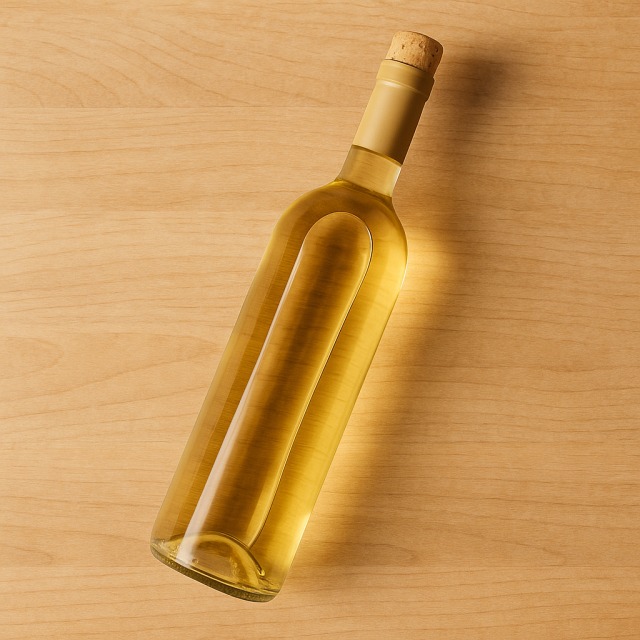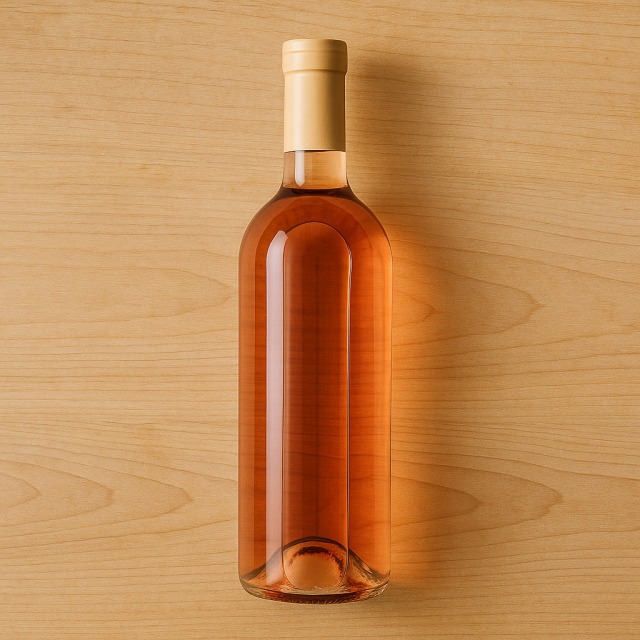Calorie Chart / Beverages / Muscat
How Many Calories Are in Muscat?
Calculation of the nutritional value & Recommended Dietary Intake of muscat
For ml and a calorie requirement of kcal
| Calories 201 kcal | Proteins 0 g | Lipids 0 g | Carbohydrates 19 g |
| 10% | 0% | 0% | 7% |
Health benefits of muscat

Muscat - 100ml
Calories 134 kcal
Proteins 0 g
Lipids 0 g
Carbohydrates 12.5 g
With around 134 kcal per 100 g, muscat ranks as a moderate-calorie treat. Those calories come almost exclusively from natural sugars, making muscat free of proteins and lipids. In addition to calories, it supplies small amounts of vitamin B1, vitamin B6, potassium, and manganese—nutrients essential for energy metabolism and healthy nerves.
Muscat grapes also contain polyphenols such as resveratrol; these antioxidants are thought to support cardiovascular health, although the benefit remains debated and should therefore be considered "supposed." Cultivated since antiquity, muscat was served at royal banquets because its aromatic sweetness delivered manageable calories compared with richer pastries. Enjoy it in moderation while keeping an eye on daily calories, and you will add flavor without an excessive calorie burden.
Tips for incorporating muscat into a balanced diet
Because its flavor is naturally sweet, a small glass of muscat pairs beautifully with strong cheeses such as blue cheese or creamy Brie; the contrast enhances taste while allowing you to budget calories elsewhere in the meal. For a lighter starter, drizzle a spoonful over an arugula, walnut, and pear salad: you gain fragrance with only minimal extra calories.
Muscat also works as a marinade for lean proteins. Combine it with orange zest and herbs to glaze grilled duck breast or shrimp and prawn; the sugars caramelize quickly, so you can keep cooking times short and calories under control. Finally, replace part of the sugar syrup in a fruit salad with a splash of chilled muscat: it intensifies flavor while letting you track the dessert's calories easily. Plan portions carefully, count the drink's calories, and balance the meal with plenty of vegetables or whole grains.
Frequently Asked Questions
- How many calories are in muscat?
- There are 134 kcal per 100 g.
- Is muscat higher in calories than ordinary grape?
- Yes. Standard table grapes average 70–75 kcal per 100 g, whereas muscat delivers 134 kcal, nearly doubling the calories for the same weight.
- Can muscat fit into a weight-loss plan without blowing my calorie budget?
- It can, provided you measure servings precisely and reduce calories elsewhere, for example by choosing steamed asparagus or broccoli as side dishes.
- What nutrients besides calories does muscat provide?
- Alongside its calories, muscat offers vitamin B1, vitamin B6, potassium, manganese, and antioxidant polyphenols such as resveratrol.
- Does chilling or cooking muscat change its calories?
- Temperature does not alter calories; however, reducing it into a syrup concentrates sugars and therefore increases calories per spoonful.
Similar foods
Alcohol consumption may be harmful to your health. Please drink responsibly. Do not drink and drive. Not recommended during pregnancy. Must be of legal drinking age.
Information provided by Calorie Menu may contain inaccuracies or errors. It cannot, under any circumstances, substitute medical advice or medication.










